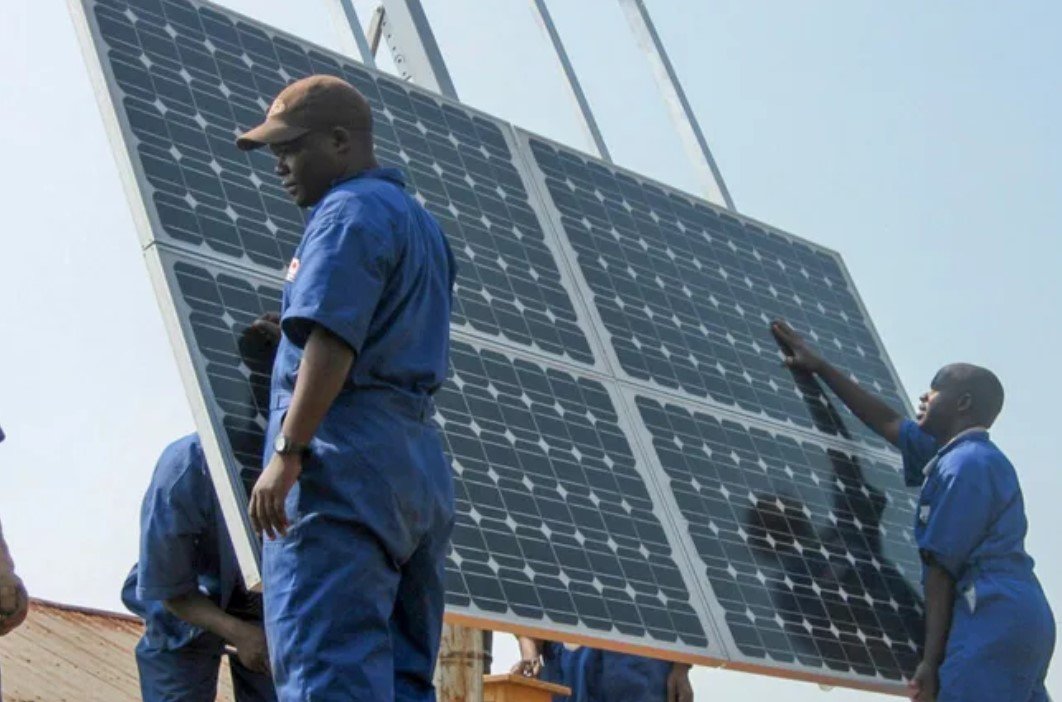In a landmark achievement for Saudi Arabia’s renewable energy sector, ACWA Power has reached financial close on three major solar projects with a combined capacity of 5.5 gigawatts (GW). The projects, located in Haden, Muwayh, and Al Khushaybi, are valued at $3.2 billion and are expected to significantly contribute to the kingdom’s ambitious Vision 2030 goals. This milestone underscores Saudi Arabia’s commitment to diversifying its energy mix and reducing its reliance on fossil fuels.

Major Milestone in Renewable Energy
The financial close of these solar projects marks a significant milestone for ACWA Power and Saudi Arabia’s renewable energy ambitions. The projects, which include the 2 GW Haden and Muwayh plants in the Mecca region and the 1.5 GW Al Khushaybi plant in the Qassim region, are set to commence commercial operations in the first quarter of 2027. This development is part of Saudi Arabia’s broader strategy to increase its renewable energy capacity and reduce carbon emissions.
The consortium behind these projects includes ACWA Power, the Water and Electricity Holding Company (Badeel), and Saudi Aramco Power Company (SAPCO). The involvement of these major players highlights the strategic importance of the projects and their potential impact on the region’s energy landscape. The financial backing from a consortium of banks, including Banque Saudi Fransi, Mizuho Bank, and HSBC, further underscores the confidence in the project’s viability and long-term benefits.
These projects are expected to generate significant economic and environmental benefits, including job creation, technological advancements, and a reduction in greenhouse gas emissions. The successful implementation of these projects will also enhance Saudi Arabia’s position as a leader in the global renewable energy market.
Strategic Partnerships and Financial Backing
The successful financial close of the 5.5 GW solar projects is a testament to the strong partnerships and financial backing that ACWA Power has secured. The consortium of banks providing $2.5 billion in funding includes prominent financial institutions such as Riyad Bank, Saudi National Bank, Standard Chartered Bank, Emirates NBD, and First Abu Dhabi Bank. This robust financial support is crucial for the timely execution and completion of the projects.
The strategic partnerships with Badeel and SAPCO are also instrumental in driving the success of these projects. Badeel, a subsidiary of the Public Investment Fund (PIF), and SAPCO, a subsidiary of Saudi Aramco, bring significant expertise and resources to the table. Their involvement ensures that the projects are aligned with Saudi Arabia’s Vision 2030 objectives and contribute to the kingdom’s economic diversification efforts.
The power purchase agreements (PPAs) signed with the state-owned Saudi Power Procurement Company (SPPC) in June further solidify the project’s financial and operational framework. These agreements guarantee a stable revenue stream for the projects, enhancing their financial viability and attractiveness to investors. The PPAs also reflect the government’s commitment to supporting renewable energy initiatives and ensuring their long-term success.
Future Prospects and Impact on Vision 2030
The successful financial close of these solar projects is a significant step towards achieving Saudi Arabia’s Vision 2030 goals. The projects are expected to play a crucial role in increasing the kingdom’s renewable energy capacity and reducing its dependence on fossil fuels. By 2030, Saudi Arabia aims to generate 50% of its energy from renewable sources, and these projects are a key component of that strategy.
The economic impact of these projects is also substantial. The construction and operation of the solar plants will create numerous job opportunities and stimulate economic growth in the regions where they are located. The projects will also attract further investment in the renewable energy sector, driving technological innovation and enhancing Saudi Arabia’s competitiveness in the global market.
In addition to the economic benefits, the environmental impact of these projects is significant. The 5.5 GW of solar capacity will help reduce greenhouse gas emissions and contribute to global efforts to combat climate change. The projects will also promote the adoption of clean energy technologies and set a benchmark for future renewable energy initiatives in the region.
As Saudi Arabia continues to pursue its Vision 2030 objectives, the successful implementation of these solar projects will serve as a model for other countries looking to transition to renewable energy. The projects demonstrate the kingdom’s commitment to sustainability and its ability to execute large-scale renewable energy initiatives. The future prospects for Saudi Arabia’s renewable energy sector are bright, and the successful financial close of these projects is a significant milestone on that journey.
